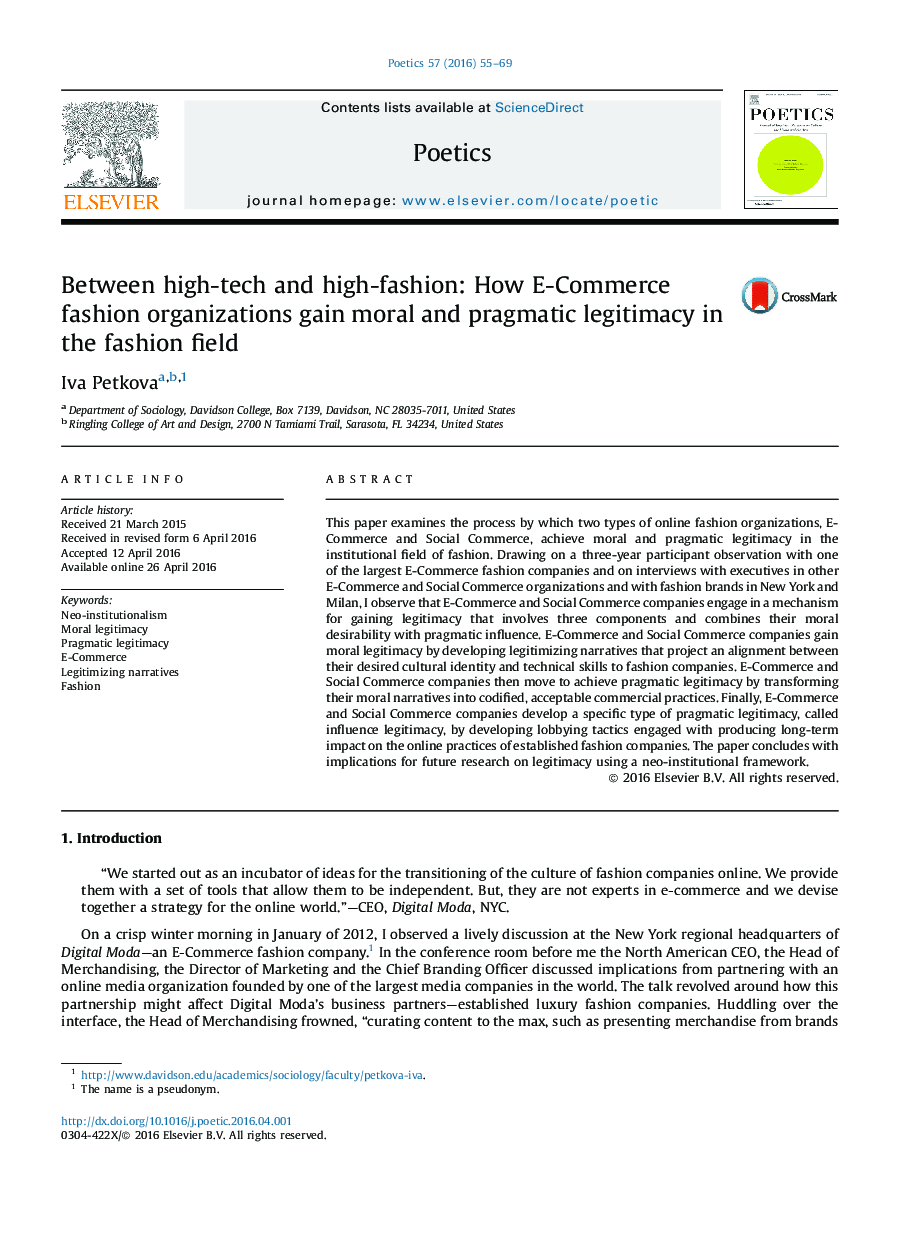| کد مقاله | کد نشریه | سال انتشار | مقاله انگلیسی | نسخه تمام متن |
|---|---|---|---|---|
| 1128241 | 1488762 | 2016 | 15 صفحه PDF | دانلود رایگان |
• Online fashion organizations gain moral legitimacy by developing legitimizing narratives.
• Online fashion organizations gain pragmatic legitimacy by formalizing narratives into codified practice.
• Online fashion organizations gain influence legitimacy, a special form of pragmatic legitimacy, by institutionalizing lobbying tactics.
This paper examines the process by which two types of online fashion organizations, E-Commerce and Social Commerce, achieve moral and pragmatic legitimacy in the institutional field of fashion. Drawing on a three-year participant observation with one of the largest E-Commerce fashion companies and on interviews with executives in other E-Commerce and Social Commerce organizations and with fashion brands in New York and Milan, I observe that E-Commerce and Social Commerce companies engage in a mechanism for gaining legitimacy that involves three components and combines their moral desirability with pragmatic influence. E-Commerce and Social Commerce companies gain moral legitimacy by developing legitimizing narratives that project an alignment between their desired cultural identity and technical skills to fashion companies. E-Commerce and Social Commerce companies then move to achieve pragmatic legitimacy by transforming their moral narratives into codified, acceptable commercial practices. Finally, E-Commerce and Social Commerce companies develop a specific type of pragmatic legitimacy, called influence legitimacy, by developing lobbying tactics engaged with producing long-term impact on the online practices of established fashion companies. The paper concludes with implications for future research on legitimacy using a neo-institutional framework.
Journal: Poetics - Volume 57, August 2016, Pages 55–69
